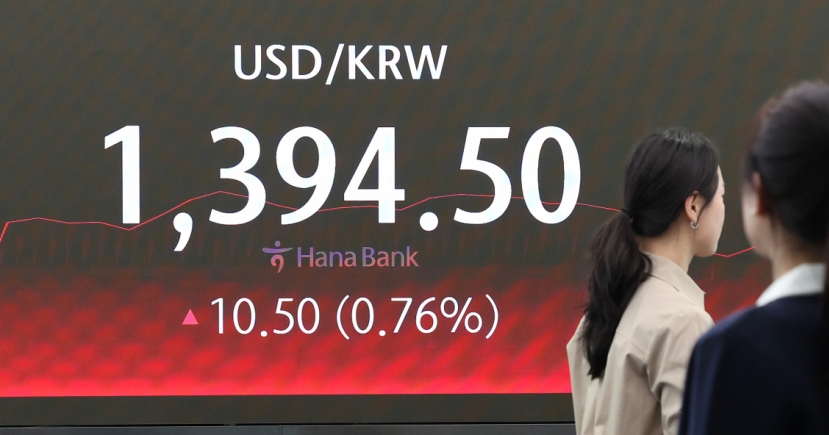Market Now
Korea’s household, corporate debt twice size of GDP: BOK
 |
(123rf) |
Debt owed by South Korean households and companies in the first quarter of this year reached a combined 3,468.4 trillion won ($2.6 trillion), or 219.4 percent of South Korea’s gross domestic product, the Bank of Korea said Wednesday, warning a rate hike could worsen repayment burdens and hurt people’s purchasing power.
The central bank, set to raise borrowing costs in July amid red-hot inflation, said in a report on financial stability that household and company debts fell by 0.1 percentage point from October-December in 2021.
In the first quarter of this year, household debt equaled 104.5 percent of the GDP, dropping 1.3 percentage points from the fourth quarter a year ago, while company debt was 114.9 percent of economic output, marking a 1.2 percentage-point rise from the same period.
Households’ outstanding loans and purchases on credit for January-March this year rose 5.4 percent from the same period a year ago to 1,859.4 trillion won. Company debt soared 14.8 percent to 1,609 trillion won on a surge in loans to ride out COVID-19.
Pointing out the high level of household debt to GDP, the BOK said, “If debts pile up when the rate goes up and prices fluctuate, people will have to deal with their growing repayment burdens and shrinking purchasing power.”
The central bank added that households would take out more loans once the Yoon Suk-yeol government eases mortgage rules as announced last week. The loan volume would see a 7 percent increase from what it was at the end of last year, according to the bank.
"If we were to loosen mortgage rules, we should do it gradually and think about the impact it will have on the housing market, household credit and the economy as a whole,” the bank said,
The Korean government has limited loans depending on how much the homes that people want to buy are worth or how much people earn annually to repay the loans. Tighter curbs had all backfired under the previous Moon Jae-in administration, prompting Yoon to reserve the strategy to cool the housing market.
Meanwhile, the BOK said self-employed workers could face defaults as early as next year unless the government rolls over their maturing loans again. The extension expires in September.
According to the bank, the loans by the self-employed amounted to 960 trillion won as of March this year, a 40.3 percent jump from end-2019. Of the 960 trillion won, 88 trillion won is held by those “most vulnerable” to defaults if the bank raises borrowing costs.
The bank noted self-employed people will face little risk of bankruptcy this year, thanks to a huge COVID-19 stimulus package dedicated to helping them ride out the economic disruptions with cash handouts. But the injection relief will wear off by early next year, the bank added, saying tighter loan curbs are necessary.
By Choi Si-young (siyoungchoi@heraldcorp.com)








